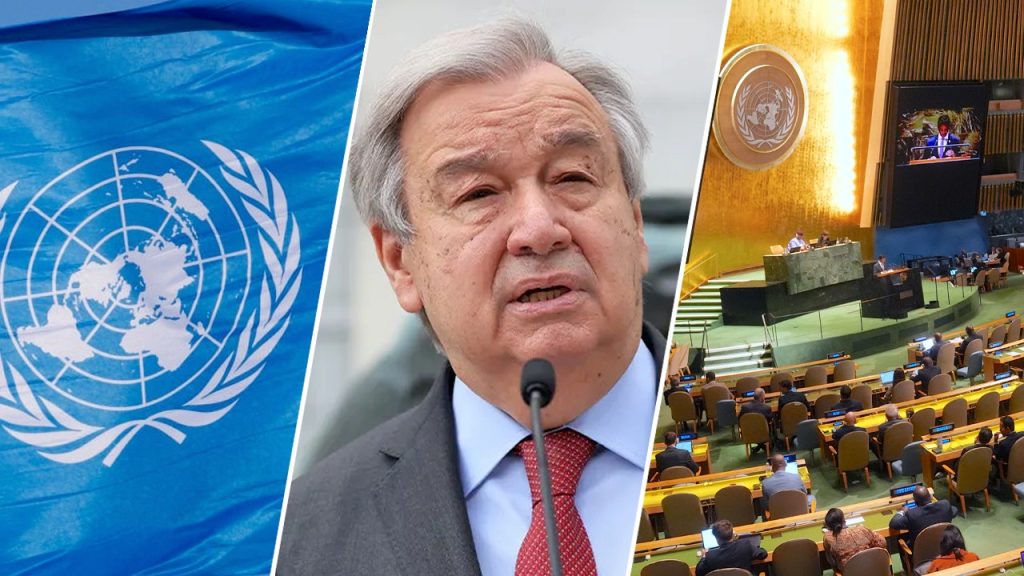The United States should resist the proposed United Nations’ (U.N.) “Pact for the Future,” which aims to recenter the global forum as a driving force on global issues that it has failed to address effectively, according to expert Brett Schaefer. The Summit of the Future, where U.N. member states are expected to endorse the pact, is an attempt by the Secretary-General to reinvigorate global action and further develop multilateral frameworks for the future. Schaefer argues that instead of endorsing the pact, there should be a reassessment, retrenchment, and refocus of the U.N.’s current operations, especially considering the flawed international response to COVID-19, drawbacks in peacekeeping efforts, and human rights violations within the U.N. bodies. The U.N. Secretary-General, António Guterres, has been working towards this summit for the past three years through his annual reports focusing on climate and pollution issues.
The proposed “Pact for the Future” seeks to expand the U.N.’s scope to address global shocks such as cyber disruptions and disruptions in global flows of goods, people, or finance. It also aims to change the way nations discuss wealth and productivity by proposing new measures beyond GDP and decentralizing financial governance from organizations like the IMF and World Bank to assist developing nations. Guterres has shown a keen interest in how the world will govern global commons such as the high seas, atmosphere, Antarctica, and outer space, as well as global public goods shared among nations. Schaefer warns that these initiatives, although seemingly altruistic, may be too much for the U.N. to handle, leading to further difficulties rather than solutions, especially for dissenting nations like the United States.
The U.S. Ambassador to the U.N., Linda Thomas-Greenfield, has raised concerns about the pact, noting that member states still have reservations about its content. Despite ongoing negotiations to finalize the agreement, Thomas-Greenfield emphasized that no consensus agreement will fully satisfy all members, and there will be elements of the pact that countries may disagree with. She remains hopeful that an agreement will ultimately be reached but expressed disappointment that some countries broke silence on certain issues during negotiations. Russia, Saudi Arabia, and others raised concerns on various topics, indicating ongoing challenges in finalizing the pact.
Schaefer warns that the “Pact for the Future” may lead to the U.N. taking on additional responsibilities beyond its current capabilities, shifting focus away from areas where it can make a unique and valuable contribution, like humanitarian assistance. He cautions that previous U.N. declarations have served as diplomatic tools to criticize the United States, and endorsing this pact could present similar challenges. Schaefer suggests that the U.S. should reconsider its support for the pact and focus on areas where the U.N. can truly make a positive impact. The U.S. remains part of ongoing negotiations regarding the pact and is working with other member states to address concerns and reach a consensus on the agreement.
The Summit for the Future, where the U.N. member states are expected to endorse the “Pact for the Future,” is seen as an attempt by the U.N. Secretary-General to reinvigorate global action and enhance multilateral frameworks for the future. However, concerns have been raised about the pact’s potential impact on the U.N.’s current operations and its ability to effectively address global challenges. The ongoing negotiations and disagreements between member states highlight the complexities of reaching a consensus on the pact and the importance of addressing various concerns raised during the process. As discussions continue, it remains to be seen whether the U.S. and other member states will ultimately support the pact or decide to seek alternative solutions to address global issues.


